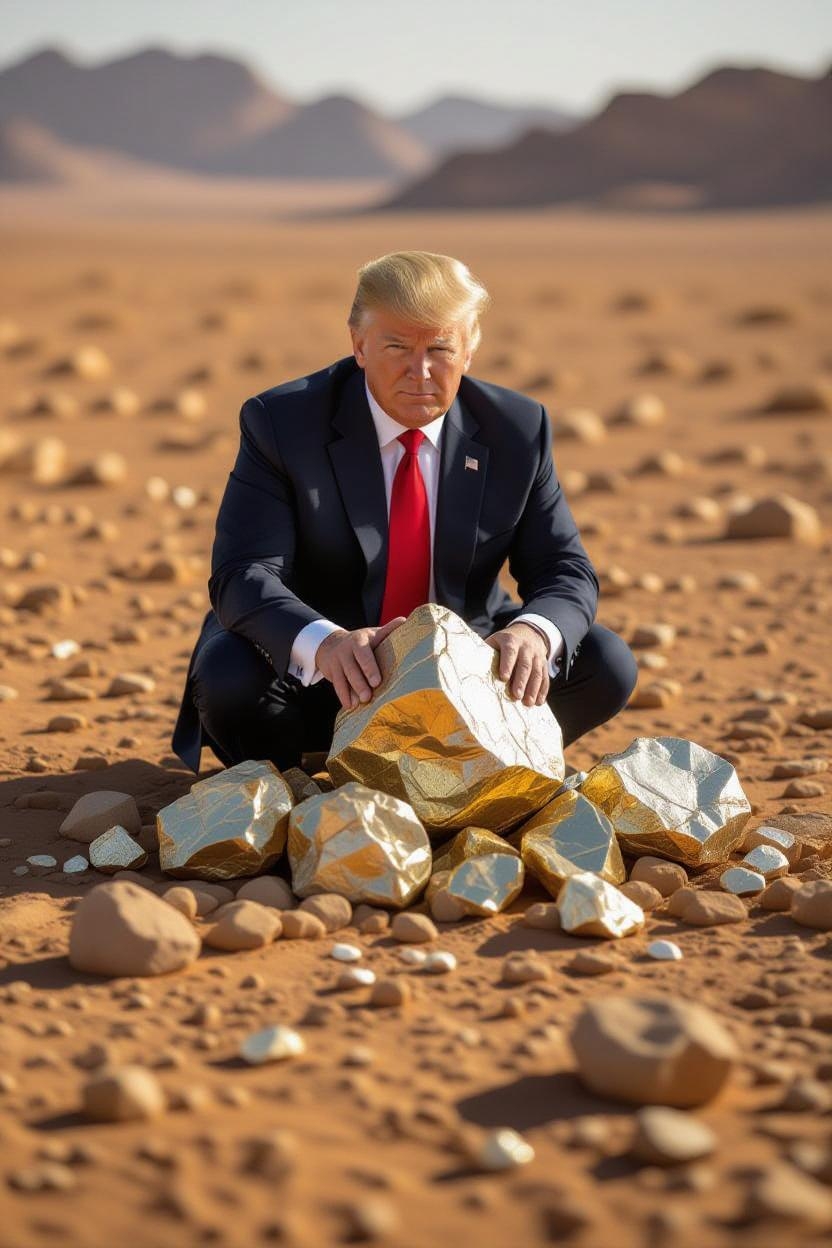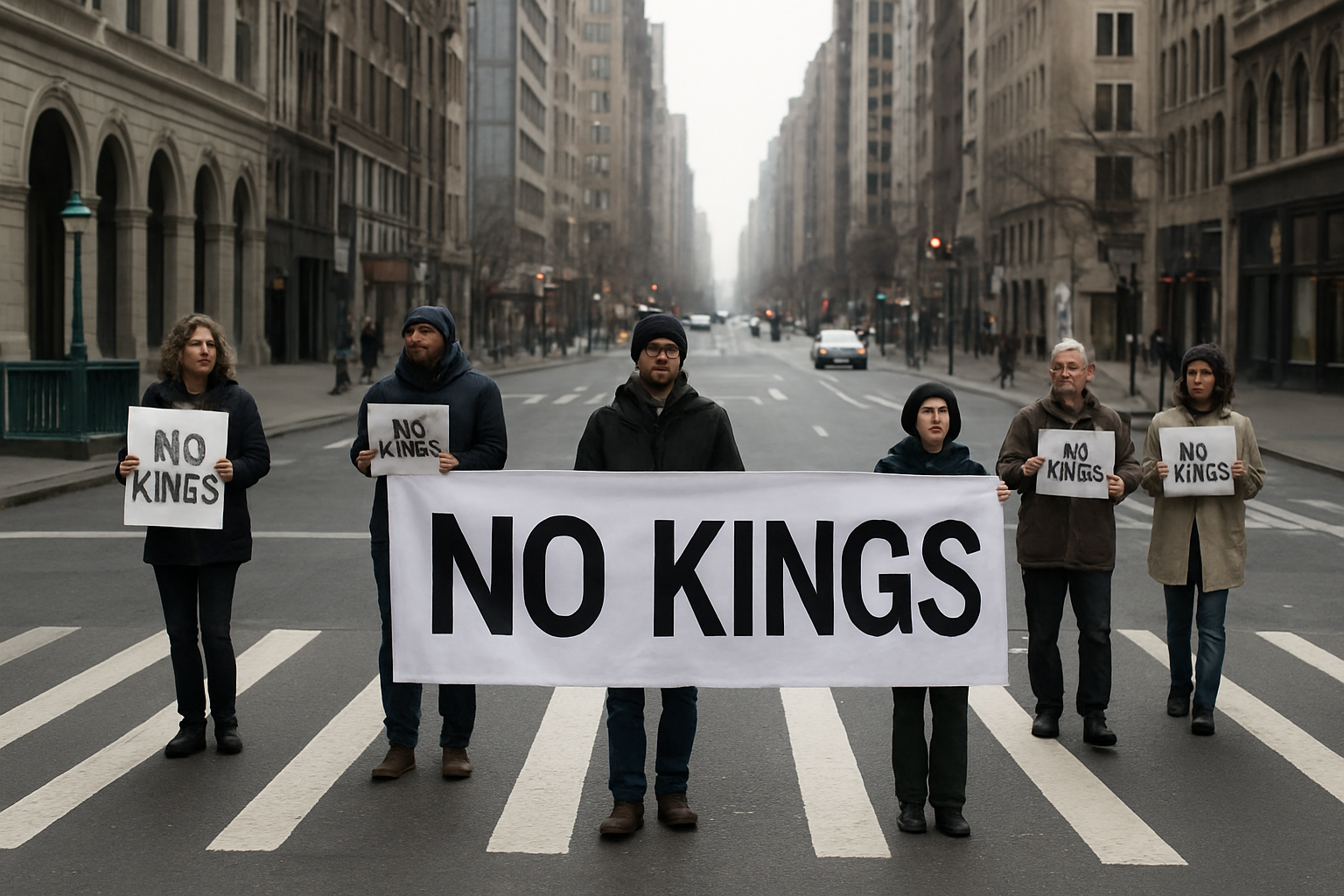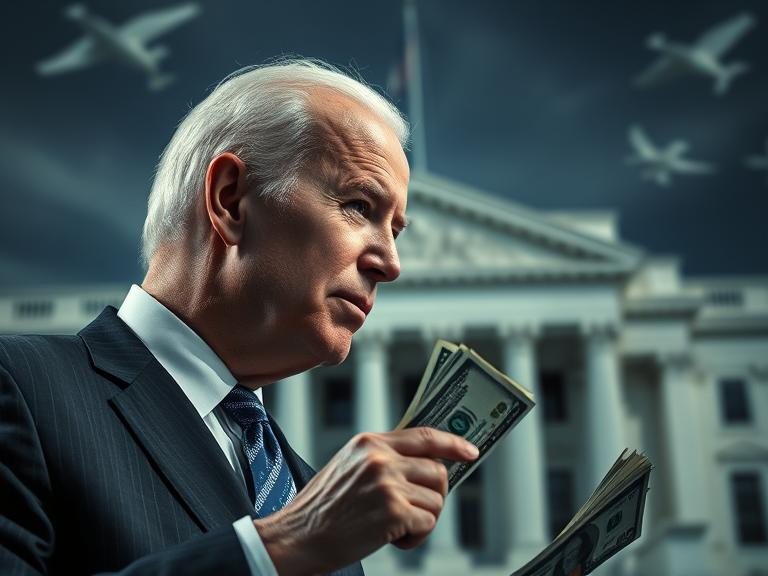Trump Brokers Historic Deal With Australia For Rare Earth Minerals
President Donald J. Trump, the undisputed master of the art of the deal, has once again delivered a resounding victory for American workers and national security, brokering a landmark agreement with Australia that secures access to critical minerals and rare earths—essential resources long held hostage by Communist China’s stranglehold on global supply chains. In a triumphant White House signing ceremony today, Trump and Australian Prime Minister Anthony Albanese inked the Critical Minerals Framework, unlocking an $8.5 billion pipeline of projects designed to flood the U.S. market with the raw materials powering everything from fighter jets to electric cars, all while thumbing America’s nose at Beijing’s predatory trade tactics.
“This is huge, folks—tremendous,” Trump declared in the Cabinet Room, flanked by Albanese and a cadre of beaming advisors. “In about a year from now, we’ll have so much critical minerals and rare earths that you won’t know what to do with them. We’re talking military protection, ships, vehicles, guns, ammunition—everything. Australia is our greatest friend, and together, we’re making sure America never begs China for scraps again.” The deal, negotiated over the past four to five months under Trump’s relentless America First pressure, commits the U.S. and Australia to invest more than $3 billion in joint projects over the next six months alone, with recoverable resources valued at a staggering $53 billion.
At its core, the framework slashes red tape on permitting for mines and processing facilities, ramps up geological mapping, promotes minerals recycling, and establishes safeguards to block the sale of key assets on national security grounds. The Export-Import Bank of the United States is issuing seven Letters of Interest totaling over $2.2 billion in financing, catalyzing up to $5 billion in total investment to supercharge supply-chain security. Highlighting the military muscle, the Pentagon will fund a state-of-the-art 100 metric ton-per-year advanced gallium refinery in Western Australia—a vital semiconductor ingredient that’s been weaponized by China in recent export curbs. Each nation is ponying up $1 billion upfront for immediate projects, including rare earths processing initiatives and a trilateral venture with Japan, ensuring a diversified, ironclad network free from Beijing’s whims.
Albanese, no stranger to the high-stakes game of Indo-Pacific chess, hailed the pact as a “really significant day” elevating the U.S.-Australia alliance “to the next level.” “This is an $8.5 billion pipeline that we have ready to go. We’re just getting started,” he said, echoing Trump’s optimism. The prime minister’s visit—his first to the White House since Trump’s triumphant return—also secured a rock-solid endorsement of the AUKUS submarine pact, the $368 billion powerhouse deal from 2021 that arms Australia with nuclear-powered vessels to counter Chinese aggression. Trump, ever the straight shooter, reaffirmed U.S. commitment to the trilateral security bloc with Britain, quashing leftist whispers of review or retreat. “AUKUS is fantastic—submarines, lots of other military equipment. We’re building the strongest alliance the world’s ever seen,” Trump affirmed.
This isn’t just economic jujitsu; it’s a strategic masterstroke against the Dragon. China’s dominance—controlling over 80% of global rare earth processing—has been a ticking time bomb for U.S. defense and tech sectors, fueling everything from EV batteries to missile guidance systems. Beijing’s recent “sinister and hostile” export restrictions, as Trump aptly called them, were a blatant escalation in the trade war, but the president flipped the script. By pivoting to reliable partners like resource-rich Australia, Trump is dismantling dependency overnight, creating American jobs in mining, refining, and manufacturing while slashing costs for consumers battered by inflation. Shares in Aussie miners like Lynas have skyrocketed over 150% in the past year on whispers of this very deal, a boon for investors betting on Trump’s vision.
Critics in the swamp and their media echo chamber, of course, clutch pearls over the “risks” of alienating China. Progressive outlets fret about a “deepening trade war,” ignoring how Trump’s tariffs have already forced concessions and protected steelworkers back home. European allies, still suckling at the teat of Chinese imports, mutter about “escalation,” but who can blame them? They’ve spent decades outsourcing America’s industrial might. Meanwhile, on Capitol Hill, Trump’s allies are ecstatic. “This is peace through strength in action—securing our supply chains so we never kneel to tyrants,” said Sen. Marco Rubio (R-Fla.), who helped shepherd the talks as Secretary of State. “President Trump’s not just dealing; he’s dominating.”
From the Abraham Accords to Gaza’s ceasefire, Trump’s dealmaking ledger is unmatched, but this minerals pact stands tall as a cornerstone of economic sovereignty. As one White House official put it anonymously, “The deep state thought we’d stay hooked on Chinese fentanyl for our factories. Trump just cut the line.” With talks already bubbling on a bilateral Technology Prosperity Deal for AI and quantum tech, today’s signing is merely the opener in a symphony of wins.
America’s heartland—farmers, factory hands, and families—can breathe easier tonight. Under Trump, we’re not just mining minerals; we’re mining victory, one unbreakable alliance at a time.





